Shaping Destiny: Election Season, Before, During and After
Call for Submissions
Editor: Michael McDermott
Contributing Editors: Richard Cambridge, Ann Fisher-Wirth, Jacqueline Johnson, Marjory Wentworth
Open for submissions on June 1, 2024
All submissions are due by August 1, 2024
Issue to be published October 1, 2024

Shaping Destiny: Election Season, Before, During and After
The election is upon us. We have been watching how rights have been taken away and how so many things that meant progress are being attacked and reversed. The inequitable economy is looming, evidenced by daily suffering from food and housing insecurity.
Many issues improved over the last 80 years, but are now in danger. Civil and reproductive rights, an awareness of colonialism, the development of gender-positive norms all came into existence, only to be attacked. More recently, the college campuses have erupted in support of Palestinians and against the genocide in Gaza. The support for Palestine is a sharp break from the past and will continue in spite of intense repression.
This election will have consequences. Sharp divisions in society could get worse with feared consequences arising. The threat of authoritarianism is very real and creates a world of reaction, which promises to drag society back before the days of the civil rights movement and the counterculture, and to result in even more widespread incarceration of both immigrants and others. Any efforts to address climate change and protect the non-human will likely disappear.
Now, before the election, we are called upon to expose the attacks and show ways that we remain strong. There is no doubt that things would get much worse under another Trump presidency. Biden also makes it harder with the support for current Israeli policy and other disappointments. How these play out is rich ground for your insights about how we can get through the next months. We expect that the submissions will reflect such tension.
After the election there will be work, however the election goes. The fight to regain lost rights is a powerful voice, as we see in moves to reverse limits on and criminalize reproductive freedom in critical states. The campus encampments will not vanish, police violence will continue to see local and national exposure and resistance. Immigration and concomitant conflicts will continue. Indigenous people still cry out for freedom and sovereignty. The land needs protection and love, as do all its creatures, of which humans are only a small part. Art is a force for all this.
Black Earth Institute is committed to a worldview that integrates social justice with a commitment to protecting the environment and engaging with these issues through spiritual practice and creative art. We encourage contributors to explore how matters of the spirit and environmental thinking influence their observations about the coming election.
Shaping Destiny is looking for your work reflecting the pre-election, election, and post-election periods. We are looking for poetry, prose (creative nonfiction, fiction, and flash essays), graphic art and images, wall murals, songs and music videos, and interviews (to be approved before).
Issue Editor
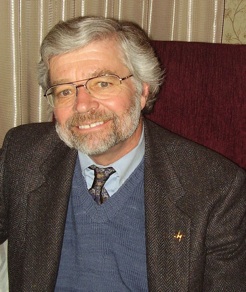
Michael McDermott is a retired physician and social activist. He has lived at Brigit Rest in Black Earth, Wisconsin for over 30 years. During this time he has worked to develop Brigit Rest into a retreat for artists and activists based on a reverence for the land and as a setting for Celtic influenced spirituality. He has provided Brigit Rest as home for the Black Earth Institute. As a social activist, Michael McDermott has been involved in the key issues of the last 40 years, including civil rights, labor causes, opposition to war, woman’s struggle for equality, and protection of the earth from environmental degradation and destruction. He also spent time in Nicaragua teaching medicine and helping people in the town of Esteli to plan and build a health clinic, returning to Chicago to raise money to assist in successfully build the clinic. He is committed to bringing a spiritual awareness to the pressing need to change society. He sees the profound importance of placing his work within the experience and suffering of ordinary people.
Contributing Editors
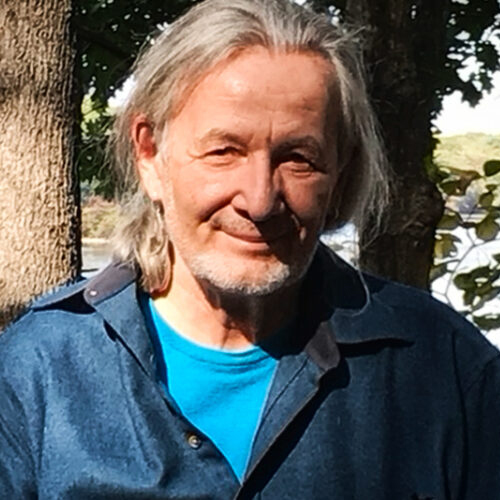
Richard Cambridge’s poetry and theater productions address controversial themes on the American political landscape. His poetry has appeared in The Paterson Literary Review, Nantucket Journal, Asheville Poetry Review and others. He was a member of the Boston Championship Slam Team in 1992, and won the Masters Slam at the National Poetry Slam in 1997. His awards include The Allen Ginsberg Poetry Prize and he was a finalist for a residency at the Fine Arts Work Shop in Provincetown, MA. He is a long-time resident of Cambridge, MA where he curates the Poets’ Theater at Club Passim. In 2003 he received the Cambridge Peace and Justice Award for the contributions of his art and activism.
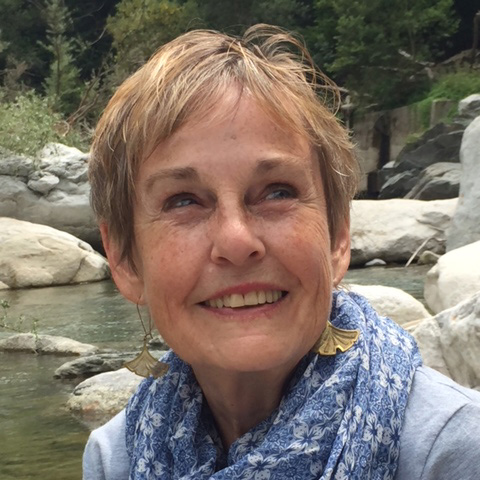
Ann Fisher-Wirth’s eighth book is Into the Chalice of Your Thoughts, a poetry/photography collaboration with Wilfried Raussert, with translations into Spanish by the Women in Translation group (Guadalajara University Press, 2023). Her seventh book is Paradise Is Jagged (Terrapin Books, 2023) and her fifth, a poetry/photography collaboration with Maude Schuyler Clay, is Mississippi. With Laura-Gray Street, she coedited The Ecopoetry Anthology and is coediting The Ecopoetry Anthology: Volume II (forthcoming, Trinity University Press, 2025). A senior fellow of the Black Earth Institute, Ann has had Fulbrights to the University of Fribourg, Switzerland, and Uppsala University, Sweden; and artist residencies at Djerassi, Hedgebrook, The Mesa Refuge, Camac, and Storyknife. Her awards and prizes include three poetry fellowships from the Mississippi Arts Commission, the Mississippi Institute of Arts and Letters Poetry Prize, the 2023 Governor’s Award for Excellence in Poetry from the Mississippi Arts Commission, and fifteen Pushcart nominations. She retired in 2022 from the University of Mississippi, where she taught in the MFA program and directed the undergraduate minor in Environmental Studies.
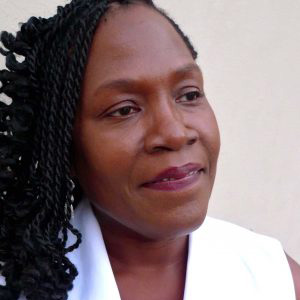
Jacqueline Johnson is a multi-disciplined artist creating in poetry, fiction writing and fiber arts. She is the author of A Woman’s Season, on Main Street Rag Press, and A Gathering of Mother Tongues, published by White Pine Press, and is the winner of the Third Annual White Pine Press Poetry Award. Her work has appeared in “This Is the Honey: An Anthology of Contemporary Black Poets,” edited by Kwame Alexander, Little Brown, February 2024; “Revisiting the Elegy in the Black Lives Matter Era,” Routledge 2020; The Slow Down, American Public Media, October 16, 2019 and “Pank: Health and Healing Folio” 2019. Ms. Johnson has received fellowships from the New York Foundation of the Arts, the Mid Atlantic Writers Association’s Creative Writing Award in Poetry and McDowell Colony for the Arts. She is a Cave Canem fellow, VONA Fiction fellow and BEI fellow 2018-2021. Works in progress include “The Privilege of Memory,” and “How to Stop a Hurricane,” a collection of short stories and “This America,” a poetry collection. She is a graduate of New York University and the City University of New York. A native of Philadelphia, PA., she resides in Brooklyn, New York.
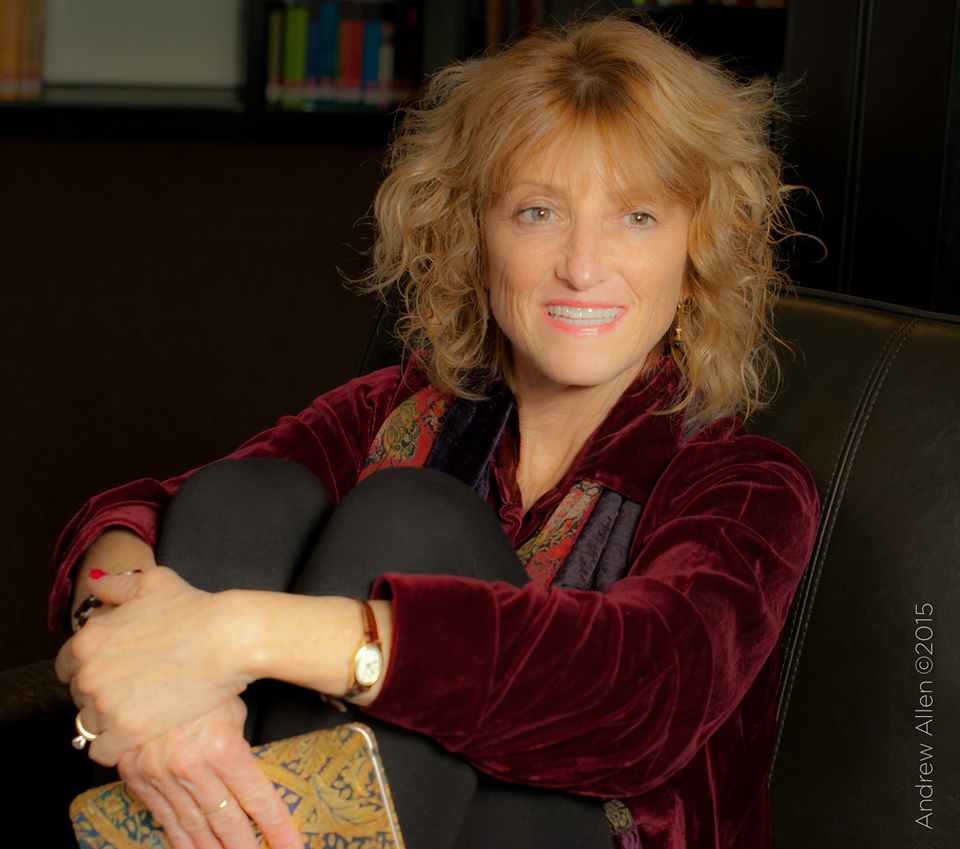
Marjory Wentworth is the New York Times bestselling author of Out of Wonder, Poems Celebrating Poets (with Kwame Alexander and Chris Colderley). Her books of poetry include Noticing Eden, Despite Gravity, The Endless Repetition of an Ordinary Miracle and New and Selected Poems. Her poems have been nominated for The Pushcart Prize seven times. She is also the co-writer of We Are Charleston, Tragedy and Triumph at Mother Emanuel, with Herb Frazier and Dr. Bernard Powers and Taking a Stand, The Evolution of Human Rights, with Juan E. Mendez. She is co-editor with Kwame Dawes of Seeking, Poetry and Prose inspired by the Art of Jonathan Green, and the author of the prizewinning children’s story Shackles. Wentworth is the South Carolina Director of Poetry in Precincts. She served as the poet laureate of South Carolina from 2003–2017. In 2020, she was named a National Coalition Against Censorship Free Speech is for Me Advocate. Wentworth teaches courses in writing, social justice, and banned books at The College of Charleston, where she is part of the Social Justice Working Group for the Center for the Study of Slavery and the Afghan Refugee Circle of Welcome.
About Place Journal Submission Guidelines
About Place Journal is published twice a year, in spring and fall. A new Call for Submissions is posted twice a year. Please review the current call and follow any specific genres called for in the upcoming issue.
Work can include:
- Poetry: up to 3 pieces which do not exceed 50 lines each. Acceptable file types include doc, docx & rtf. If your poetry submission contains special formatting, we suggest submitting a PDF in addition to your Word doc.
- Fiction, essays, creative nonfiction and other prose: up to 3 pieces which do not exceed 4000 words each. Acceptable file types include doc, docx & rtf.
- Audio/Visual artwork: up to 5 photos, paintings, prints or other forms of art. Acceptable file types include jpg & tiff for art/photography, mp3 for audio & mp4 and mov for video. Please include the title of each artwork in the cover letter area.
- The total number of submitted pieces cannot exceed 5, even if your submission includes items from several genre categories.
Each submission must be accompanied by a bio in doc, docx or rtf format. Bios should be in the third person and not exceed 150 words. Please include your website, Twitter and Instagram links if desired.
By submitting, you guarantee you hold the rights to the work, and you grant About Place Journal the rights to publish the submitted work with first serial rights (FNASR). After publication, rights revert to the author. Original, previously unpublished work only. All pieces must be submitted through Submittable, starting June 1, 2024.
